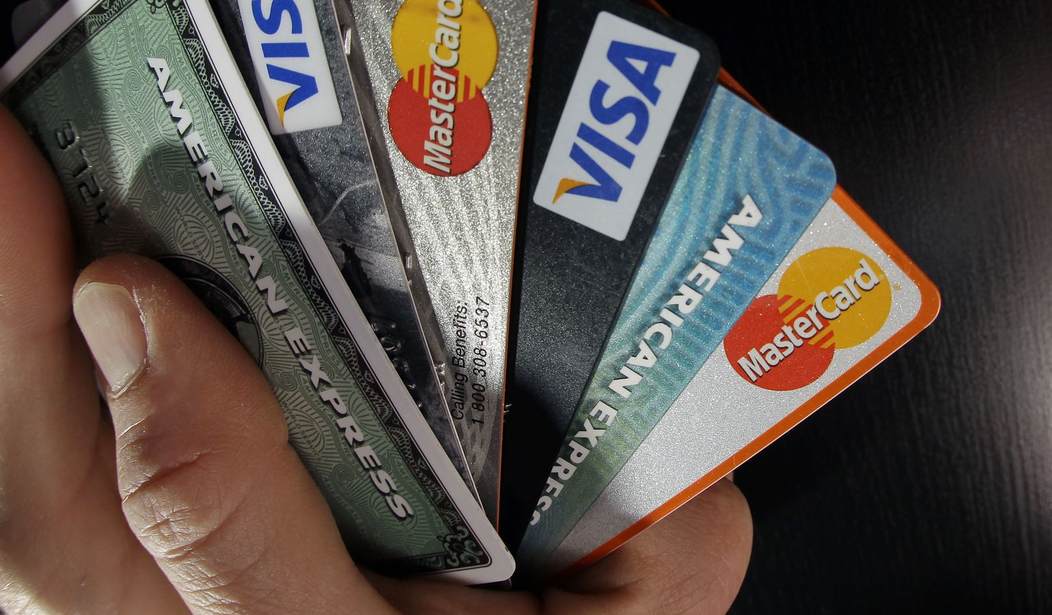Earlier this year, thanks to pressure from lawmakers and a profoundly anti-gun bank, the organization in charge of credit card codes decided to give gun stores their own, unique code. The reason was so that gun purchases could, at least in theory, be tracked.
And yeah, that was met with about as much love and rejoicing in the gun community as you’d imagine.
The NSSF’s Larry Keane points out some of the issues with this.
[Amalgamated Bank CEO Priscilla] Sims Brown lobbied the International Organization for Standardization (ISO) to create a gun-related Merchant Category Code (MCC) for credit and debit card companies to use to track cardholders’ purchases of firearms and ammunition. The ISO adopted the proposal and banks are beginning to use them. Listening to Sims Brown forecast what’s ahead, her true gun control aim is revealed. It’s a dragnet for law-abiding Americans.
“We’re at the very early stages of this –,” Sims Brown told Sorkin and the audience. “But as this is implemented, those scenarios will be used.”
By “those scenarios,” she means “detection scenarios” in which a particular purchase prompts a bank to file a Suspicious Activity Report to the Treasury Department’s Financial Crimes Enforcement Network. Here’s how the MCC tracking will reportedly work. Purchases made at retailers selling firearms or ammunition would be assigned the new code for purchases. The MCC won’t identify what is in the customer’s basket, so it could be a total purchase of a firearm and several boxes of ammunition. It could also include a new tent, sleeping bag, propane stove, waders, decoys, blinds, and other outdoor gear. The total cost could be flagged as “suspicious” since it might be an outlier on a customer’s purchase history. That doesn’t make it nefarious, though.
The media reported the proposal won’t have its intended effect. “The payment network and its banking partners would have no idea if a gun-store customer is purchasing an automatic rifle or safety equipment,” Bloomberg News reported. Banks aren’t saying what purchases would be “suspicious.”
Keane points out that some in Congress are trying to push through legislation that would give banks cover to be even more invasive in your financial dealings with regard to your gun purchases.
And that’s a huge issue because as Keane notes above, no one is saying what purchases would be suspicious and what wouldn’t. That’s probably because no one knows.
A mass shooter uses a couple of different credit cards to buy an AR-15 and an assortment of magazines. Some say that’s suspicious…until you realize that a few dozen other people in the same state may have done the exact same thing and harmed no one.
Further, as things currently stand, the credit card codes only identify the type of store where a purchase is conducted. It doesn’t look in the shopping bag to identify what kind of products were bought. So if every store that sells guns gets its own code, then how are you going to differentiate purchases at outdoor stores like Bass Pro Shops or another big box retailer? Hell, even Walmart sells guns, so one would assume they’d get the same code.
So it’s not difficult to imagine high-dollar purchases from these stores, sometimes across multiple credit cards, for things that have nothing to do with guns.
I mean, I can only imagine the amount of hate the ATF would get if they raided some poor soul over a couple of televisions.
Of course, that failure would only be used to justify more invasive measures and we all know it. They’ll start to want to know exactly what you bought, which won’t have the desired effect.
Instead, people will find another way to obtain guns. Those with nefarious intent will especially find a way to get around those new efforts.
But try convincing these dipsticks of that.







Join the conversation as a VIP Member